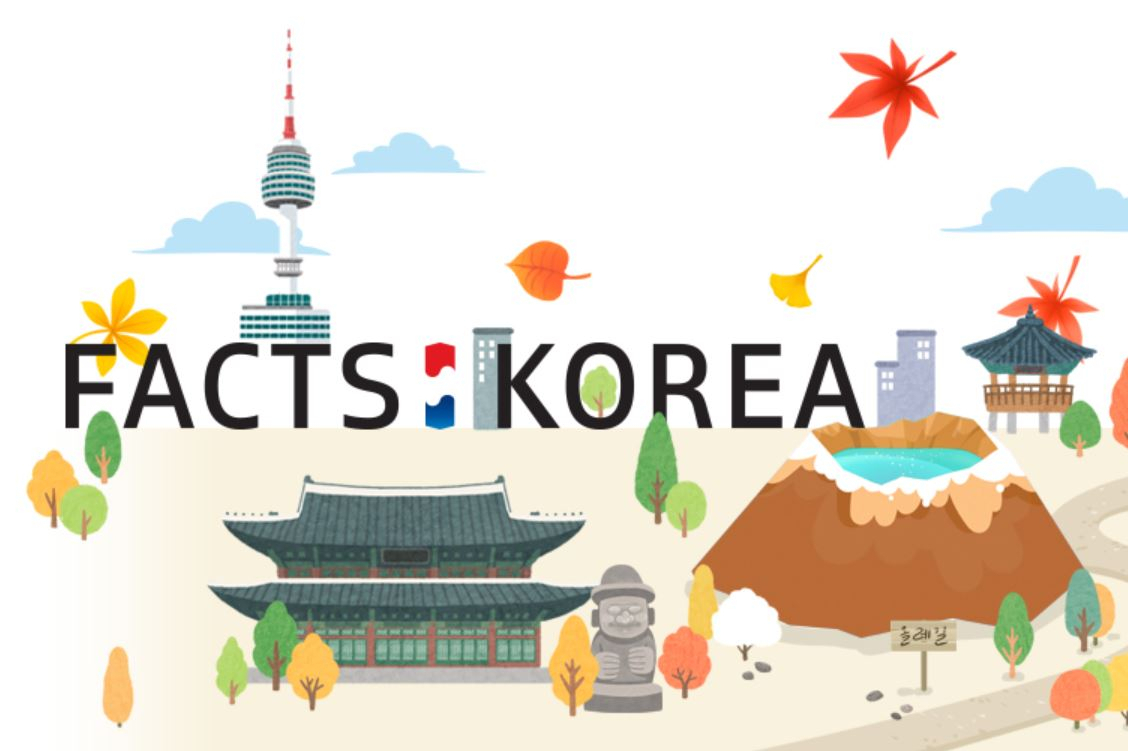 |
Image of Korean Culture and Information Service's website, FactsaboutKorea (KOCIS) |
Korea Culture Information Service received 13,452 requests to seek revisions to information about Korea on foreign media and websites between September 2016 to August this year.
Of them, 3,916 cases have been changed, according to Thae Yong-ho, a ruling People Power Party lawmaker, Friday, citing a Korea Culture Information Service reported submitted to the lawmaker's office.
Korean Culture and Information Service's Correction of Misinformation service team receives reports on miswritten or incorrect information on Korea found in foreign media and websites from the public through its website FactsaboutKorea. The eight-member team is also in charge of seeking revisions.
During a six-year period, a total of 5,317 cases of the East Sea being identified as the Sea of Japan were discovered but only 1,214 of them were changed. Of the 127 cases in which Dokdo islets were identified as Liancourt Rocks, 43 cases have been revised.
Among the misinformation that Thae's office cited are "Korean tigers' habitat was destroyed due to Koreans' exploiting tigers for use in traditional medicine" and "In the event of war, all command of the Korean military will be transferred to the US military."
Tigers went extinct in Korea after a Japanese policy to eradicate dangerous animals, and while US forces have wartime operational control over South Korean military actions if the two countries agree to carry out combined operations, Seoul retains wartime command authority.
The lawmaker pointed to the lack of personnel as the main reason that more revisions were not made, but a KOCIS official, speaking with The Korea Herald, said that a more fundamental problem of communication structure.
"As for self-evident facts such as the misspelling of the name of a president or a city, we handle them directly. But if it's debatable, we hand the report over to the relevant administrative offices -- the Ministry of Agriculture, Food and Rural Affairs for facts about kimchi, or the Ministry of Education and the Academy of Korean Studies, if linked to information on foreign textbooks," a KOCIS correction service team's official told The Korea Herald on Friday.
Upon receiving a report of incorrect information, the team is required to report the outcome of the subsequent investigation and their future management process to the person who filed the report, within 14 days.
"Even after we find out about the errors, it takes time for the relevant media to receive, check the original post and reply to us. Even when the investigation of the case is completed, sometimes the media does not respond," said the official.
The official further explained that such cases are typically tagged to diplomatic controversies, which require long-term management together with sustained attention and effort by the public.
"For instance, an NGO group, Voluntary Agency Network of Korea, is actively raising public awareness on such issues," the official added.
The team at KOCIS operates on an annual budget of 300 million won. Most of the budget goes toward expert translations of foreign languages, according to the official.







![[Weekender] Korea's traditional sauce culture gains global recognition](http://res.heraldm.com/phpwas/restmb_idxmake.php?idx=644&simg=/content/image/2024/11/21/20241121050153_0.jpg)